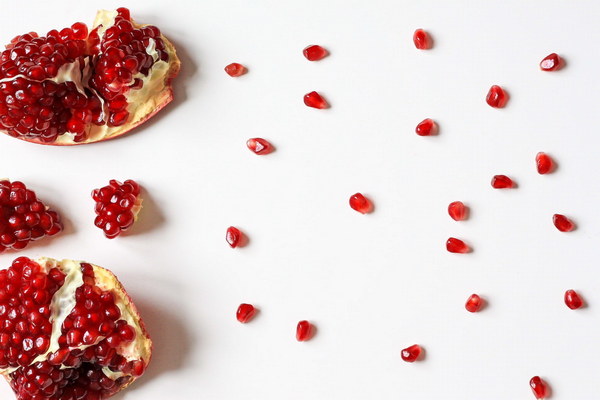Natural Remedies The Power of Traditional Chinese Herbs for Cold and Cough Relief
In the realm of traditional medicine, there's a wealth of knowledge waiting to be explored. When it comes to treating colds and coughs, traditional Chinese herbs have been a staple for centuries. This article delves into the world of these natural remedies, highlighting the power of traditional Chinese herbs for cold and cough relief.
Understanding the Problem
Colds and coughs are common ailments that can strike at any time, often accompanied by symptoms such as a sore throat, runny nose, and a hacking cough. While modern medicine offers a variety of treatments, many people are turning to natural remedies to alleviate their symptoms. Traditional Chinese herbs have been used for thousands of years to treat a wide range of conditions, and cold and coughs are no exception.
The Science Behind Traditional Chinese Herbs
Traditional Chinese medicine (TCM) is based on the belief that the body is a harmonious system, and any imbalance can lead to illness. TCM practitioners use herbs to restore balance and promote healing. The herbs used in cold and cough remedies are chosen based on their properties, which are believed to be cooling, warming, drying, or moistening, depending on the specific symptoms.
Top Traditional Chinese Herbs for Cold and Cough Relief
1. Ganmao Qinggan Wan (Ganmao Clearing and Relieving Pill)
This is a popular herbal formula that combines several herbs to relieve cold and cough symptoms. It's believed to clear heat, drain dampness, and strengthen the immune system.
2. Chuan Bei Mu (Fritillaria Thunbergii Bulb)
Chuan Bei Mu is a potent herbal remedy known for its cooling properties. It's often used to relieve a sore throat and cough, particularly when caused by heat.
3. Sang Bai Pi (White Peony Root)
Sang Bai Pi is another cooling herb that's often used to relieve sore throat, cough, and fever. It's believed to have anti-inflammatory and analgesic properties.
4. Jie Geng (Platycodon Grandiflorus Root)
Jie Geng is a well-known herb used to treat coughs, particularly those accompanied by a sore throat. It's believed to have expectorant properties, helping to clear mucus from the lungs.
5. Bai Zi Ren (Biota Seed)
Bai Zi Ren is a drying and cooling herb that's often used to relieve coughs, especially those caused by dampness or heat. It's believed to have expectorant and antitussive properties.
How to Use Traditional Chinese Herbs for Cold and Cough Relief

When using traditional Chinese herbs, it's important to consult with a qualified TCM practitioner, as the correct dosage and combination of herbs can vary depending on the individual's specific symptoms and constitution. In general, the following steps can be followed:
1. Consult a TCM Practitioner: A qualified practitioner can assess your symptoms and recommend the most appropriate herbal formula for your needs.
2. Prepare the Herbs: The herbs can be prepared in various ways, such as brewing them as a tea or taking them in capsule form.
3. Follow the Recommended Dosage: It's important to adhere to the recommended dosage to avoid potential side effects.
4. Monitor Your Symptoms: Keep track of your symptoms and report any changes to your TCM practitioner.
Conclusion
Traditional Chinese herbs offer a natural and effective way to treat colds and coughs. By understanding the properties of these herbs and consulting with a qualified TCM practitioner, you can find relief from your symptoms and restore balance to your body. While modern medicine has its place, the ancient wisdom of traditional Chinese herbs is a valuable resource for those seeking a holistic approach to health and wellness.









